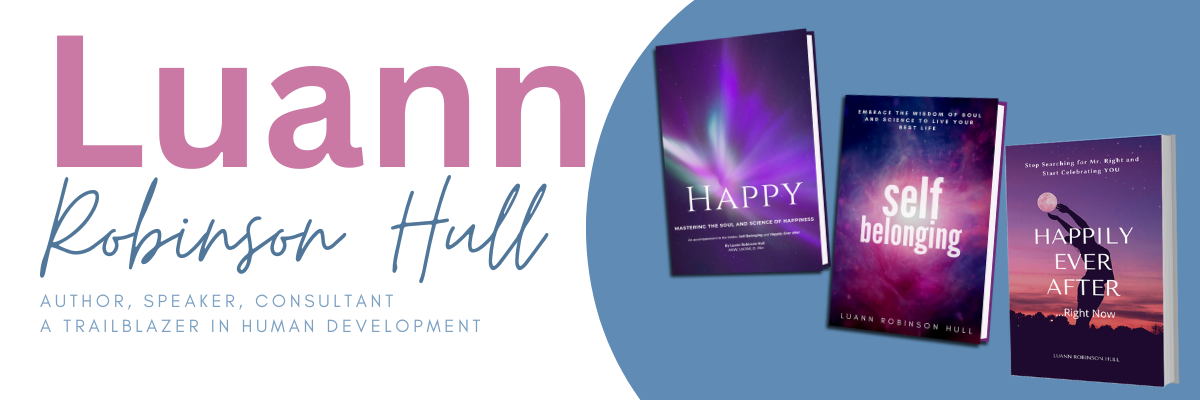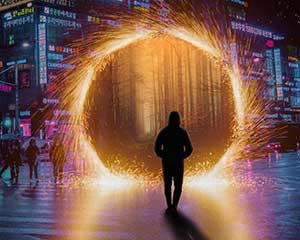“If you have been brutally broken but still have the courage to be gentle to others then you deserve a love deeper than the ocean itself.”—Nikita Gill
Dear Hearts,
The late Scott Peck introduced me to my spiritual path with his acclaimed classic The Road Less Traveled, which has sold 6.5 million copies since its release in 1978. Peck’s second but lesser known work, introduced five years later, is People of the Lie—The Hope for Healing Human Evil. While The Road is a primer on how to live a spiritual life, People of the Lie offers direction on navigating the horrors of human evil.
In my second book, Self Belonging (due out in April) there is a section entitled Taming the Incredible Hulk, where I refer to neuroscientist Andrew Newberg’s assertion that “anger is humanities greatest enemy.” Newberg believes that of all the emotions, anger is the most primal, dangerous, and difficult to control since it shuts down the frontal lobes where reasoning, compassion, and tolerance live. When you get angry, you lose your ability to be rational—you can’t hear (let alone feel) another’s position or point of view. Instead, the more you boil the more justified you feel in feeding your own righteousness.
I find that during these chaotic times, evil, or anger of the malicious variety, seems to be mounting from the personal to the global—a phenomenon unprecedented in my lifetime (which as I’ve shared is not a short amount of time). I was born just after World War II and have read extensively about the horrors of that war, documenting my own father’s critical role in Self. I graduated from high school in 1968, three years after America jumped into the Vietnam War and about 20 years after the end of World War II. My brother narrowly escaped the draft in 1967. Others I knew were not so fortunate, returning from Nam with PTSD (post-traumatic stress disorder) or not returning at all. I witnessed the effects of wartime and other atrocities while working in the psychiatric world, including abuses of the most unconscionable nature.
Nonetheless, it seems that the level of fear, the culprit for human evil according to Peck, is currently amped up to an exceptional degree, ever escalating with economies shutting down, people losing jobs and businesses, and folks sequestered at home, as global violence and desperation run rampant without any immediate end in sight. The only hope some cling to lies in the promise of modern medicine’s proclaimed messiah—the “miracle” vaccine. But is it? All I can say is do your research, and, in order to get varying points of view, you’ll have to dig.
To paraphrase Peck, the difference between people who just get angry, raise their voices or freak out every now and again (if we’re honest, couldn’t we include ourselves in this category?)—and others who persistently blame and project their anger onto everyone else—is that the latter subgroup will never admit their transgressions. As Peck offers in The Lie: “The evil are terrified that their pretense will break down and they will be exposed to the world and to themselves. They are continually frightened to come face to face with their own evil…Regardless of how well they attempt to appear calm and collected in their daily dealings, the evil live their lives in fear.”
Then there are the “spiritual-people-offenders”—the worst in my estimation—who can “do no wrong,” repeatedly pontificating about their own virtues while vilifying others with vicious criticisms and judgments. Because, as Peck asserts, the evil are petrified to admit wrongdoing, they instead devote all of their psychic energy into devious and deceptive rationalizations for blaming everyone else—never taking responsibility for their own wrongdoings —even when those are blatantly obvious. Instead, the more evidence against them, the more bitterly they will defend themselves. The late Debbie Ford once wisely said “When you point the finger at someone else, you are pointing three fingers back at yourself” (go ahead, try it and see what she means.)
Peck actually hoped that those responsible for updating the Diagnostic and Statistical Manual of Mental Illness would create a category for evil, but thus far, with two revisions since he wrote People of the Lie—that has not been accomplished. In contemplating Peck’s proposition regarding the DSM, I wonder: is evil a mental illness, a product of conditioning and DNA, or the old rugged brain (the fight or flight “monster”) on steroids? Perhaps we are looking at some combination of all three.
Whether or not we can resolve that question, it seems the only good news in evil raising its ugly head, is that when doing so, it’s exposed. And, more good news… we don’t have to put up with “mean people” who “suck” anymore (a phrase I once saw on a bumper sticker)—the ones, who can dish it out but will never take responsibility for their own misdeeds; the ones who consistently blame those who threaten their smug sanctimony, dripping in contempt.
If you have someone in your life who is one of those “mean people who suck,” run like hell, and for sure, don’t take their actions personally. Whether s/he be a government official or someone up close and personal, I mean it. Do not engage with them, or get all riled up over their rhetoric, nor expect them to take responsibility for their cruelty. Trust me. They won’t—not, at least, until hell freezes over and they have nowhere to run but toward themselves. If you are afraid to leave, don’t be. There are more resources now than ever before to support anyone who is being bullied, harassed, or abused. If you don’t know what those are but need to, email us here. Our team at Hearn House will help you find those resources or direct you to someone who can.
So if, indeed, anger is the human enemy, what can we do to eradicate it—or at least calm it down?
While Peck did recommend having compassion towards those with evil tendencies, he didn’t offer a more specific formula to transcend it. The amazing Swiss psychiatrist, Carl Jung, however, did have some thoughts on problems of a seeming insoluble nature. As I note in Self, Jung stated:
All the greatest and most important problems of life are fundamentally insoluble…They can never be solved, but only outgrown. This outgrowing proved on further investigation to require a new level of consciousness. Some higher or wider interest appeared on the patient’s horizon, and through this broadening of his or her outlook the insoluble problem lost its urgency. It was not solved logically on its own terms but faded when confronted with a new and stronger life urge.
In essence, Jung believed as I do that Divine law has our back. As long as we focus on that Life Urge of ours, it will never fail to nurture and guide us. And when enough of us tune in and listen to that sacred, silent voice gently nudging us to take heart and soar above the mundane meanderings of fear and hatred, we will create enough momentum on planet Earth to utterly eclipse human evil altogether, giving birth to a new level of human consciousness. At that point, Divine love will be the prevailing influence. Actually, it already is—it’s just sometimes not that easy to spot amidst the current chaos—maybe all the more reason to amp up our awareness and attention? We don’t want to miss the many acts of loving kindness that arehappening should we be persuaded toward some unnecessary diversion. As I say in Self Belonging, “People are just doing what they do. We don’t have to be there while they’re at it”—which brings me to the final point. Shall we join together and make a sweeping, universal intention to forgive any and all beings whom we may perceive as “evil” or to have transgressed us in some way? Doesn’t letting go of our defenses free us up to direct our energy toward what inspires us? Ya. That’s what I’m talkin’ about—peace, harmony, and freedom. Let’s do this…
Believing in you…and that spring will come!
Love, Luann
To preorder your copy of Self Belonging, to be published April 13, 2021, click here.









